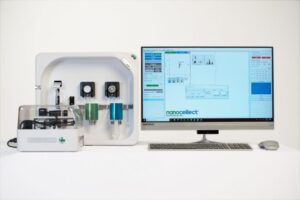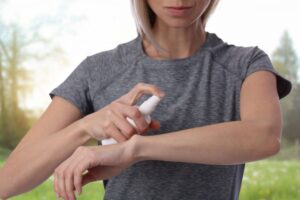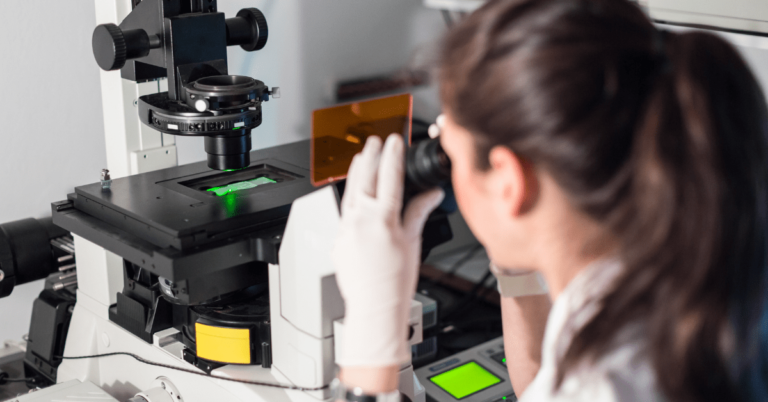Written by: Molly B. Schmid, Ph.D., Senior Counselor, SBDC @ UCI Applied Innovation
Orange County is the world’s primary hub of biomedical innovation in medical devices. Tapping into this expertise, the first Concept to Commercialization workshop was held at the Cove @ UCI, October 25, 2018. This workshop brought together current and former FDA leaders, regulatory lawyers, experienced life science entrepreneurs, and regulatory affairs consultants to meet with regional life science entrepreneurs at the SBDC @ UCI Applied Innovation. It was a joint, and hopefully annual collaboration between the SBDC @ UCI AI and the Orange County Regulatory Affairs (OCRA) discussion group.
Beware of “unknown unknowns”
“What does it take to get my life science-based product to market?” Assuming the product is medically related, then the typical answers to this question often center on meeting FDA requirements to demonstrate the safety, efficacy and quality of the product. For the new life science entrepreneur, learning about the FDA approval process can be nearly overwhelming. Planning the resources and time needed to prove the product’s safety, efficacy and quality is often the entrepreneur’s driving focus, with a steep learning curve.
However, a key take-home message of the Concept to Commercialization workshop was that receiving FDA approval or clearance is necessary, but not sufficient for commercial success. Three key sessions comprised the workshop and aimed to show additional aspects of planning that are needed for commercial success – regulatory aspects, reimbursement, and market entry. These three are interrelated. Several speakers and discussion panel participants recommended planning the reimbursement and market entry early, to avoid costly surprises that will increase the overall time and money needed to achieve commercial success.
Don’t be blind to what you don’t know – the unknown-unknowns will get you! Smart, savvy biotech entrepreneurs will seek advice and advisors to find the unknown-unknowns, allowing them to better plan the commercialization process. They’ll also manage the process of commercialization like the excellent project manager that they need to be – or become – with a clear understanding of the desired endpoints of all the stakeholders in the revenue generation process.
The “product is the data”, and “the data is the product”
The entrepreneur’s team needs to collect data that characterize the product, but several speakers also recommended market characterization – collecting quantitative information to document:
- Who needs the product and why?
- What is the quantifiable value of the product in the market?
These data will support market claims that the FDA will review. If the data are not collected at the time of the efficacy and safety studies, the marketing folks will be frustrated by the limited marketing claims that the FDA will allow. If the value-based data are not collected, then CMS won’t allow reimbursement, or not at the desired levels. Speakers recommended drafting the desired marketing claims and market value proposition needed to support reimbursement. They suggested that very often, minor modifications of pivotal trials will allow collection of the necessary data, to support not only safety, efficacy and quality, but also desired marketing claims and the reimbursement value proposition.
But how do the marketers know what they want to claim? Only by talking to the customers, which is also something that should be done early, so that the product characteristics meet the medical need, and the influencers among the patient population can experience the benefits of the new product.
Health care providers and insurers have adopted value-based payment systems, which make it even more important to think about reimbursement. Changes arising from the Affordable Care Act and other federal legislation are forcing documentation of the market value of new approved biomedical products prior to their adoption.
Case Study: Capillary Biomedical
Capillary Biomedical is creating a new catheter for insulin infusion pumps. The company has been incubated at the Cove @ UCI for about two years, and recently received an investment from the Cove Fund. The company also has received funding from JDRF, SBIR Phase I and Phase II, and from angel investors after animal testing showed the capabilities of the new catheter device. They’re now seeking additional funding to bring their product to market.
Paul Strasma, CEO of Capillary Biomedical, built a team of seasoned technical and business executives, along with advisors and a Board of Directors to lead the effort to improve care for diabetics. He described the initial pivot of the company, when the team learned from their interviews that insulin testing is not the real problem for diabetics, but rather that rapid clogging of the catheter that delivers insulin from the infusion pumps into the body is the real Achille’s heel in the market.
He described the importance of funding from JDRF not only for the money provided, but the access to patients who could give feedback to the R&D team and then become influencers for the value of the new product. The Capillary Bio team is building relationships with distributors now, even though their clinical trials are still in the future. He described his strategy as intending to leave the existing distribution relationships and reimbursement paths in the market alone, just adding a better product. He’s also thinking about those relationships as potential for a future acquisition, which investors want to hear and assess as a realistic possibility for a liquidity event.
This was the inaugural event marking the beginning of a relationship between the Orange County Regulatory Affairs discussion group (OCRA) and the SBDC @ UCI Applied Innovation. The relationship aims to benefit OC’s life science entrepreneurs and provide life science entrepreneurs with the information they need to build successful new companies that can commercialize new biomedical innovations. The intention is to have an annual regulatory affairs workshop, along with smaller, topic-focused workshops of interest to regional entrepreneurs. Furthermore, this relationship allows SBDC clients easy access to the wealth of medical technology commercialization knowledge available in the Orange County region.







